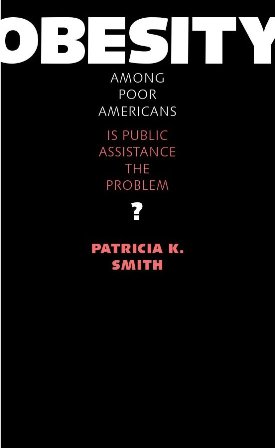Unless you're on a media-free diet, you've probably heard the news about the 15 pounds college students supposedly pack on freshman year. Just in case you missed it, the "Freshman 15" has been deemed nothing but a media myth in a hot-off-the press study.
The average college student, both male and female, only gains about three pounds the first year, according to the study. To be exact, freshmen gals gain 2.4 pounds; freshmen guys gain 3.4. That's what research scientists Jay Zagorsky and Patricia Smith concluded in December's Social Science Quarterly after analyzing data on 17- to 20-year-olds from the National Longitudinal Survey of Youth 1997, a survey of 7,000-plus Americans.
Whether or not you go to college, weight gain predictably happens after high school. Given that those who attend college gain just a half pound more than those who don't, Zagorsky and Smith believe weight gain at this critical life juncture has more to do with becoming a young adult than going to college.
The coauthors' surprising findings got me wondering: Will the truth about the "Freshman 15" help college-aged dieters go easier on themselves? Might the media actually do as the dynamic research duo suggest: shift their focus from losing weight to gaining health?
What I most wanted to know was the story behind the study. For starters, what moved a pair of economists to turn their analytical eyes on college weight gain? You read right: Zagorsky and Smith are not just research scientists, they're economics professors.
From my research, I'd learned that Zagorsky -- an Ohio State researcher and a Boston University teacher -- got interested in the research topic after he received a postcard urging him to join BU's gym and "lose the freshman 15." When I emailed him for the full backstory, he replied: "I chuckled [when I got the postcard], first, because clearly I was on the wrong mailing list. (I haven't been a freshman in 30+ years.) And second, because I thought the freshmen I teach don't magically gain 15 pounds from September 'til May. While I teach a giant lecture class, they all seem to have the same body type over time."
Our brief email exchange, while somewhat satisfying, left me craving a woman's perspective. After all, fat has predominantly been a feminine issue. So I put in a call to the best possible source. What follows are questions and answers from my recent long-distance chat with Patricia Smith, Professor of Economics at the University of Michigan-Dearborn.

Q. What's an economist doing studying weight issues?
A. Economists are interested in obesity because it has an economic component. It costs the U.S. millions and millions of dollars every year in medical costs and loss of activity. Economists are interested in how we can reduce those costs and increase labor productivity.
Q. Why did you decide to investigate the "Freshman 15"?
A. It's certainly cheaper to stop the growth of obesity than to help obese people lose weight. [Financial] resources are scarce. If this were a critical point in life to target resources and have success, that'd be great. Turns out, it isn't. We all gain a few pounds a year, and it adds up.
Q. Did you gain weight freshman year?
A. I do remember being warned of the "Freshman 5" back in the late 1970s, and that my friends and I were excited that the cafeteria had just added a salad bar. None of us gained much weight that year or throughout our college careers. Although, I did gain about 20 pounds over the first two or three years of graduate school and worked to lose it the last years of grad school.
Q. Why do you think you gained the "Grad School 20"?
A. Diet, stress, eating for comfort, probably a drop in physical activity because I was spending so much time reading. There's nothing like studying economics with a big bowl of M&Ms. I don't know if my experience is common to grad students.
Q. In my private practice, I've seen a fair number of grad students who want to lose the "Grad School 20." I think it's a real phenomenon, not a myth, because the media has yet to use the term.
A. It'd be curious to see if grad students are, in fact, different than those who don't go to grad school. Jay and I will have to get right on it [she said half-seriously].
Q. Do you know if Jay gained the "Freshman 15" or the "Grad School 20"?
A. I don't know. I'll have to ask him. We've seen each other's pictures, but we've never met. Our work is all through email and the occasional phone call.

Q. Before you studied college students, you studied poor Americans. You even wrote a book about obesity and poverty. In a nutshell, what'd you learn?
A. We observed higher obesity prevalence among the poor. While there's no one single cause, there are a variety of reasons: reduced access to nutritious food, stress, lack of sleep... Jay and I did a study on weight gain and food stamps. Looking at people before, during and after food stamps, we saw the same general pattern we saw with college students -- they gain a few pounds before, a few pounds during and keep gaining a few pounds every year after. There's no one cause, one time period, it's just what happens for a lot of people.
Q. What was the most surprising thing you learned about college students in the "Freshman 15" study?
A. I had expected there might be a bigger difference between college students and those not in college. That there might be something about the dorm environment, the all-you-can-eat cafeterias, the snack bars, ordering pizza. I thought [a big difference] would stand out, and it just didn't.
Q. Based on your findings, what's your best recommendation?
A. Not to worry about weight so much. Advice should be given [to college students] not in terms of weight, but in terms of developing healthy habits, a healthy lifestyle.
Q. Because I've written a book about compassionate weight loss, I always ask interview subjects what's compassion got to do with it, with your work?
A. Economists have got a bad reputation. People tell jokes about us knowing the price of everything and the value of nothing. Actually, as a group, we've very interested in how best to meet people's wants and needs with the resources we have. There's more compassion involved in economics than most people might realize.
Q. What will you investigate next?
A. I'm looking to update my work on the relationship between poverty and obesity, but I guess we're going to have to look at the "Grad School 20!"
After the interview, I emailed Zagorsky for an answer to my one remaining question. Did he gain the "Freshman 15" or the "Grad School 20"?
Here's his reply: "To the best of my knowledge, I did not change weight during either freshman or grad school years even thought I ate almost constantly. During the years before and during grad school, I often had breakfast, worked out and then had a second breakfast."
My conclusion: Both researchers clearly have keen minds, but Zagorsky has the enviable metabolism.
Photo by Jennifer Thelen
Jean Fain is a Harvard Medical School-affiliated psychotherapist specializing in eating issues, and the author of "The Self-Compassion Diet." For more information, see www.jeanfain.com. Got a thing or two to say about any of the above? Please share in the comments section.